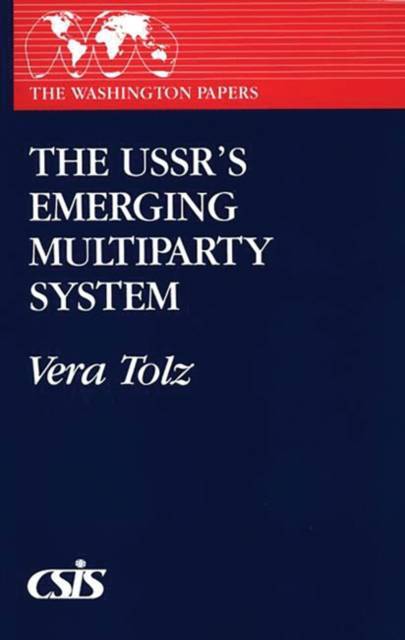
- Retrait gratuit dans votre magasin Club
- 7.000.000 titres dans notre catalogue
- Payer en toute sécurité
- Toujours un magasin près de chez vous
- Retrait gratuit dans votre magasin Club
- 7.000.000 titres dans notre catalogue
- Payer en toute sécurité
- Toujours un magasin près de chez vous
Description
Throughout the history of the USSR, groups of like-minded people have gathered, without official permission, to discuss issues of common interest. They had their predecessors in prerevolutionary voluntary associations and political parties. During the 1960s it became easier and less dangerous than in the previous period of Stalin's rule to engage in activities outside government control. Indeed, since the de-Stalinization campaign in the 1950s, Soviet society has been slowly asserting its independence, at least in areas nominally nonpolitical. Nevertheless, until Gorbachev's drive for liberalization achieved some momentum, the creation of unsanctioned groups often continued to provoke persecution of their members. In this book, Vera Tolz studies these unsanctioned groups and reveals the effect they are having on the Soviet political system. In 1990, primarily because of pressure from these unofficial movements, the Communist party was forced to relinquish its constitutionally guaranteed monopoly on power. In other words, a multiparty system had emerged in the USSR by the end of the period under observation in this book.
From the time that voluntary associations of Soviet people were permitted to emerge from the underground and openly participate in official public life (1987), their role in the political and social life of the country has been rapidly expanding. By 1989, new sociopolitical groups, especially in the Baltic republics and Transcaucasia, started to pose not only a challenge but also a threat to the power of the Communist party. The emergence of a multiparty system in the Soviet Union, with various political groups pursuing different--and at times opposing--goals, is coinciding with a period during which the central authorities are being inconsistent in implementing democratic reforms. Representatives of new movements are often politically inexperienced, and the Communist party is facing a serious crisis, which makes the political situation in the Soviet Union highly unpredictable and highlights the difficulties that the country faces in moving toward a more democratic systemSpécifications
Parties prenantes
- Auteur(s) :
- Editeur:
Contenu
- Nombre de pages :
- 144
- Langue:
- Anglais
- Collection :
Caractéristiques
- EAN:
- 9780275938383
- Date de parution :
- 26-11-90
- Format:
- Livre relié
- Format numérique:
- Genaaid
- Dimensions :
- 156 mm x 246 mm
- Poids :
- 412 g







